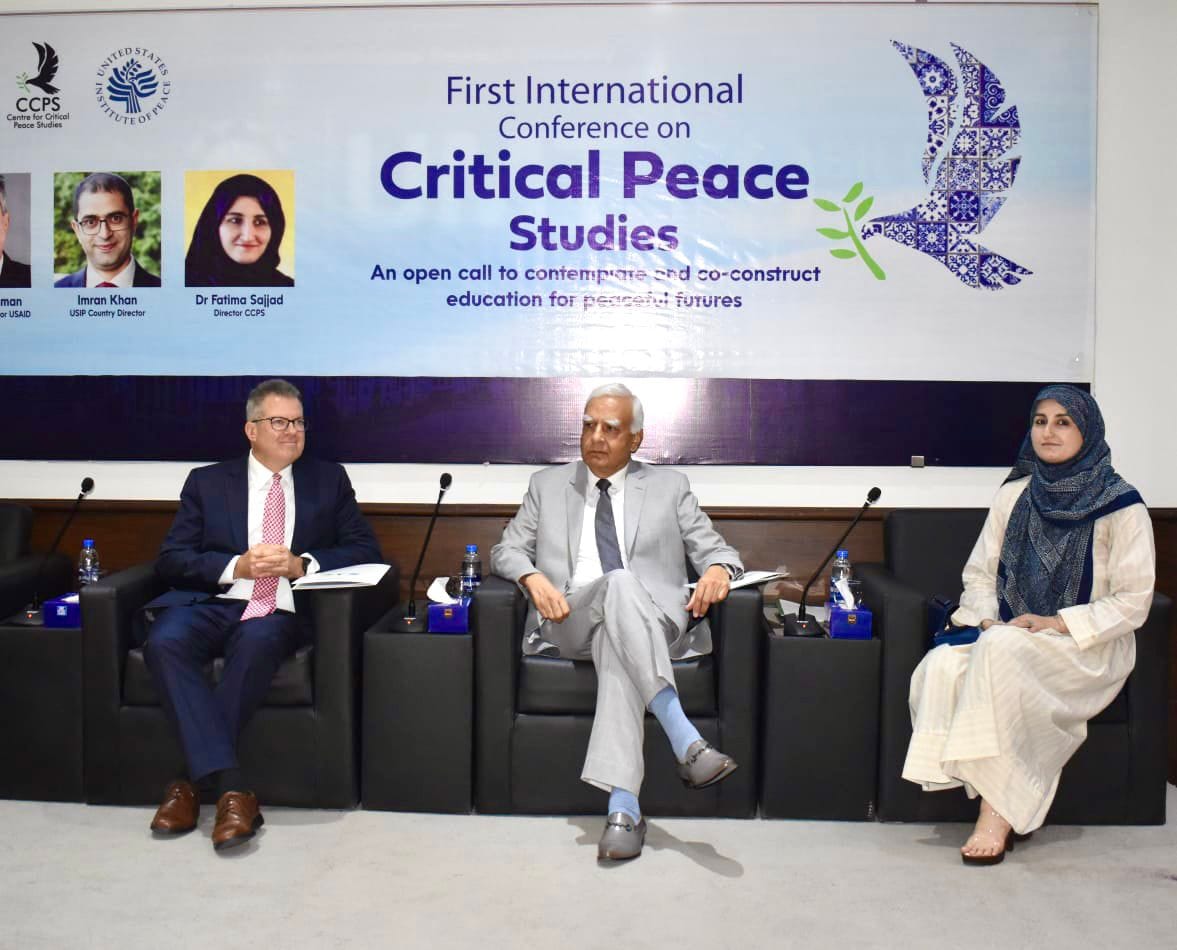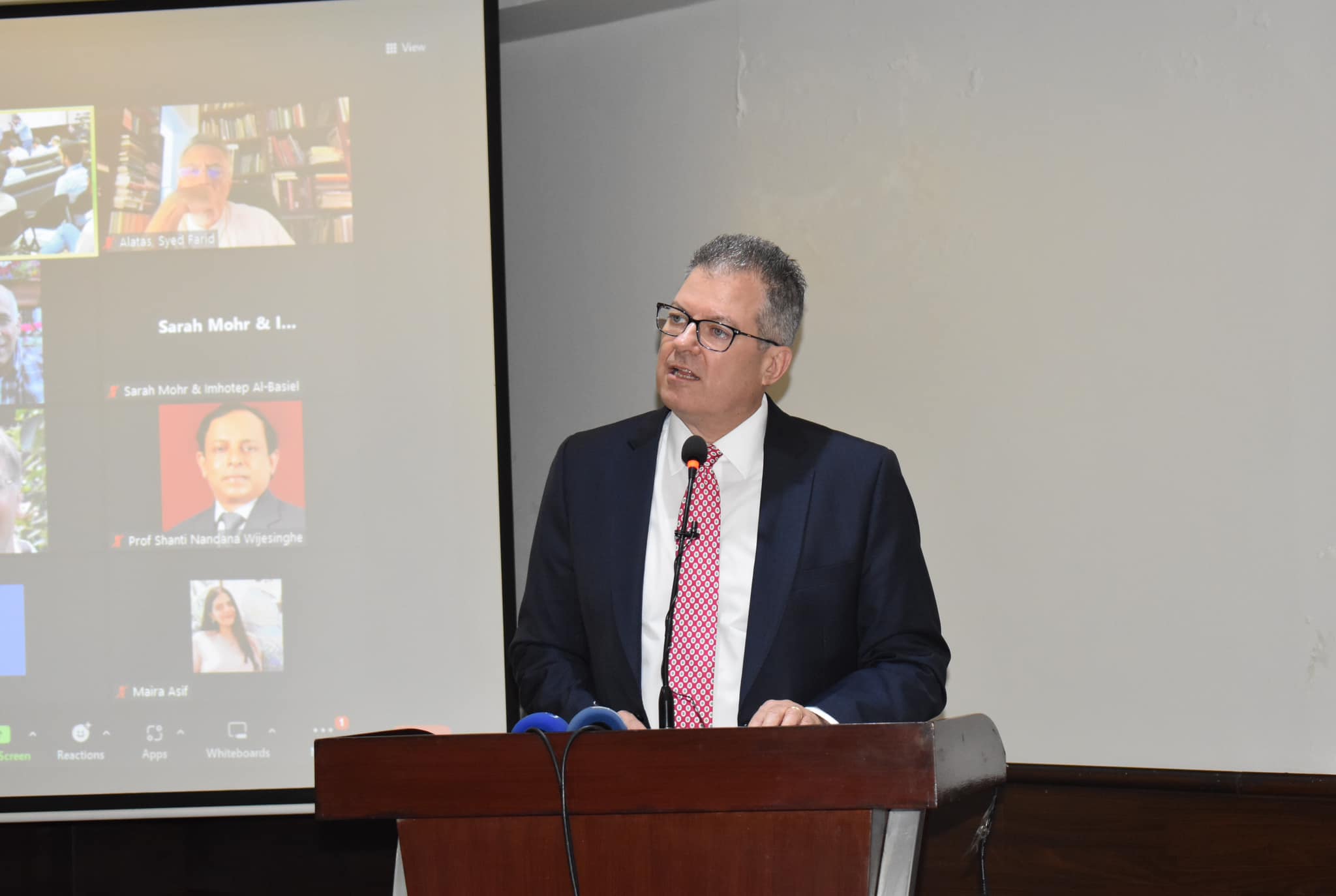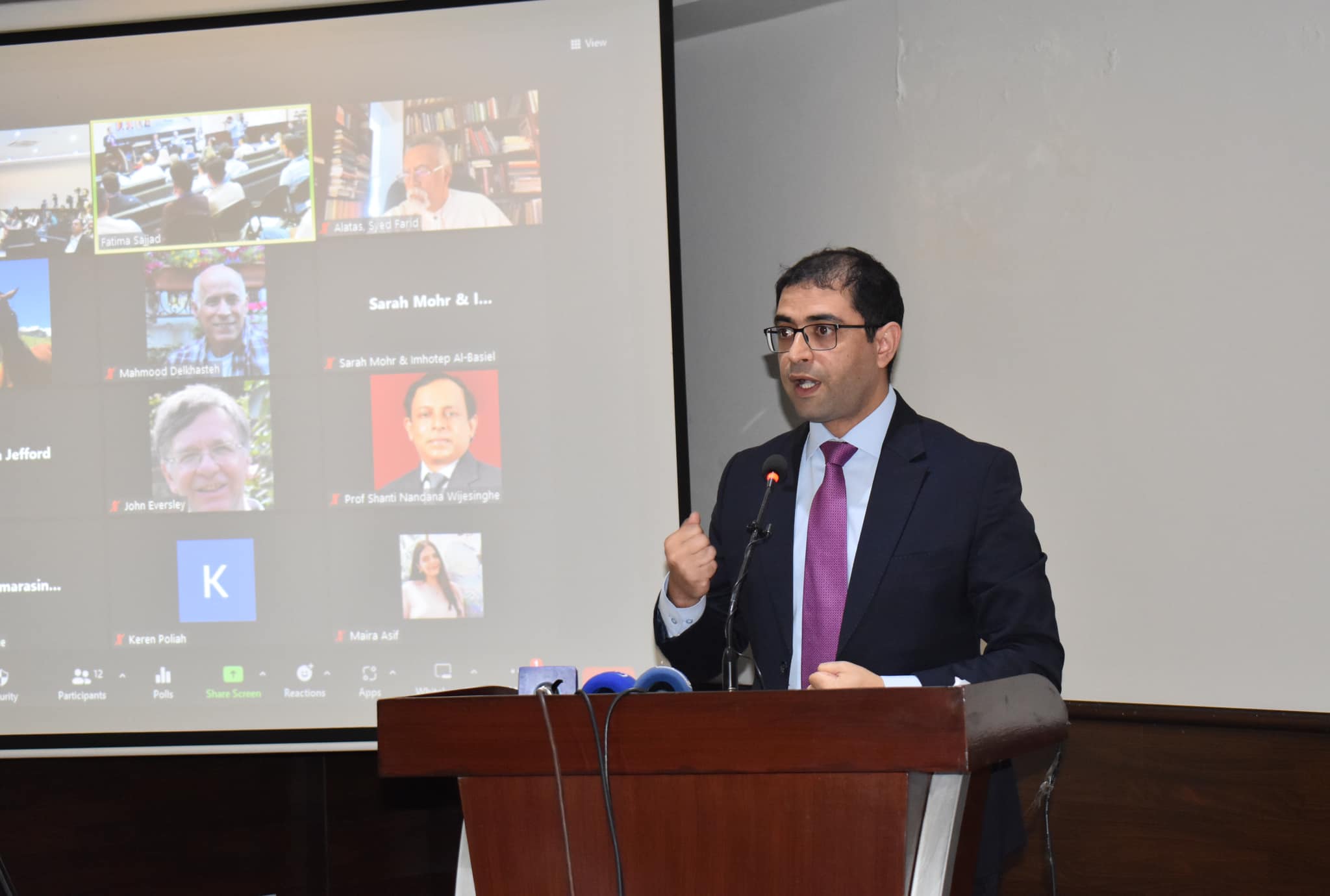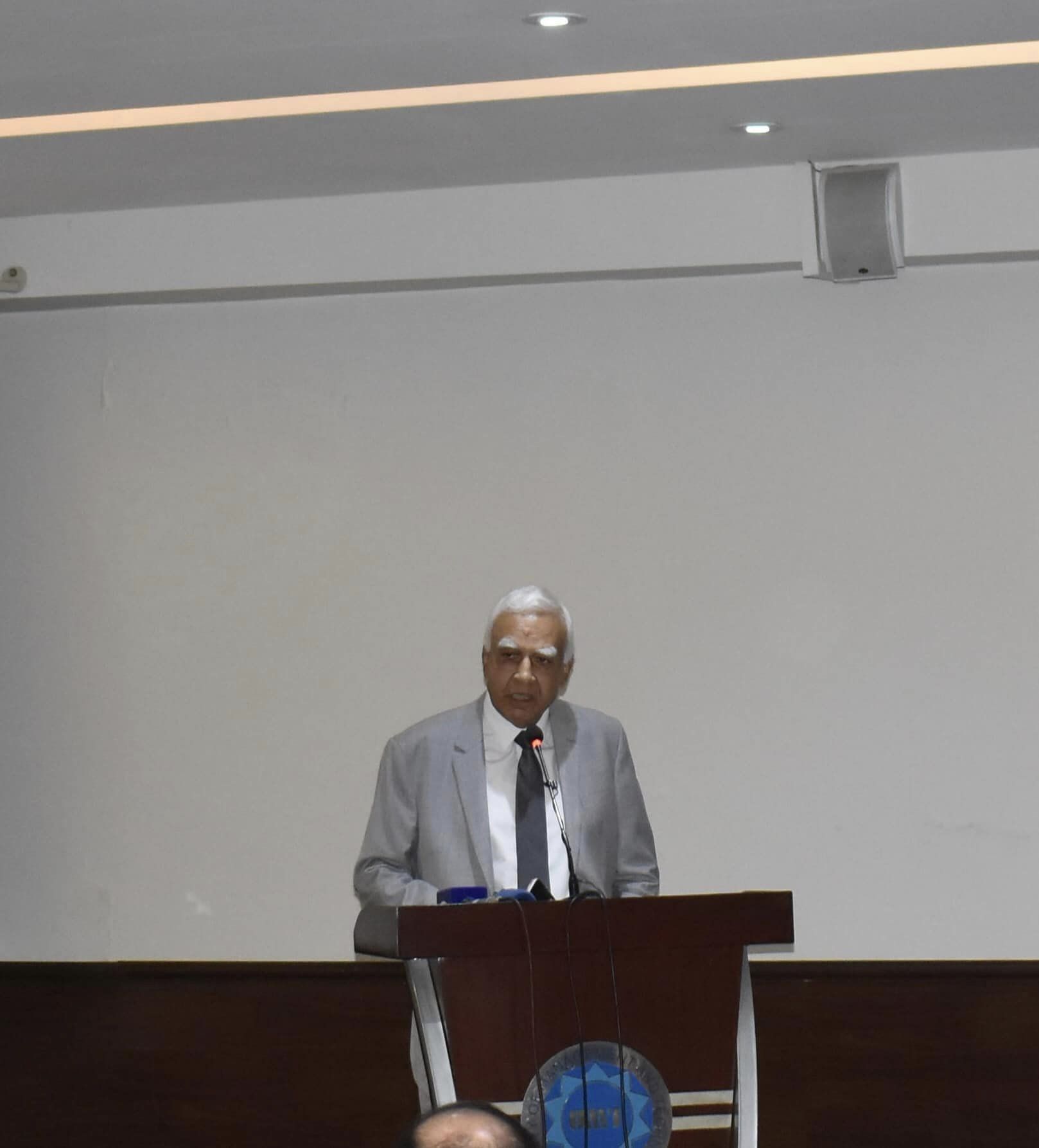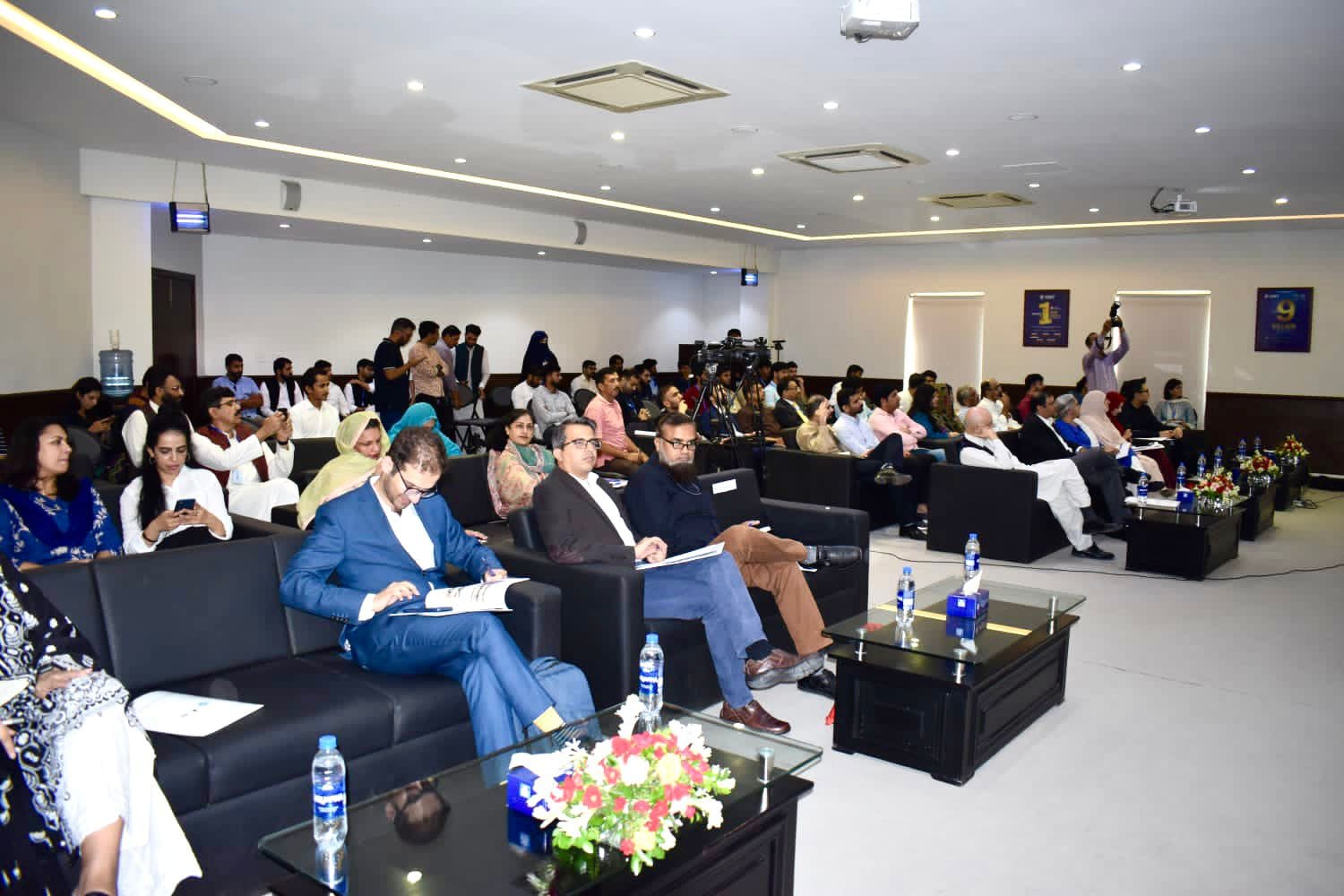The First International Conference on Critical Peace Studies marked a significant milestone in advancing the understanding and application of Critical Peace Studies. The perspectives shared by Michael Rossman, Imran Khan, Dr. Fatima Sajjad, and Dr. Asif Raza underscored the importance of critical approaches in addressing complex global challenges and fostering sustainable peace. The conference succeeded in fostering meaningful dialogue, creating networks among scholars and practitioners, and setting the stage for further exploration and advancement of Critical Peace Studies in the years to come.
The inaugural First International Conference on Critical Peace Studies convened an eminent panel of thought leaders and experts in the field of peace studies. The conference aimed to delve into the profound significance and value of Critical Peace Studies in contemporary global contexts. The event brought together key figures such as Michael Rossman, Acting Mission Director of the United States Agency for International Development (USAID); Imran Khan, Country Head of the United States Institute of Peace (USIP); Dr. Fatima Sajjad, Director of the Center for Critical Peace Studies (CCPS); and Dr. Asif Raza, Rector of the University of Management and Technology (UMT).
**Session Highlights:**
1. Michael Rossman - Acting Mission Director, USAID:
Michael Rossman underscored the crucial role that Critical Peace Studies play in fostering sustainable development and conflict resolution. He emphasized that a multidisciplinary approach is imperative for addressing complex global challenges and creating lasting peace. Rossman highlighted USAID's commitment to supporting initiatives that integrate critical perspectives, advocating for a comprehensive understanding of the underlying causes of conflicts. He also emphasized the importance of collaboration between governmental and non-governmental entities to promote peace and stability.
2. Imran Khan - Country Head, USIP:
Imran Khan echoed the sentiment that Critical Peace Studies offer a unique lens through which to analyze and address conflicts. He stressed that the traditional approaches to peace often overlook structural and systemic issues that perpetuate violence. Khan commended the role of USIP in advancing critical perspectives in peacebuilding and conflict resolution. He expressed optimism about the conference as a platform for fostering innovative ideas and nurturing the next generation of peace scholars and practitioners.
3. Dr. Fatima Sajjad - Director, CCPS:**
Dr. Fatima Sajjad delved into the foundational principles of Critical Peace Studies, elucidating its emphasis on power dynamics, social justice, and challenging dominant narratives. She highlighted the importance of examining how power operates at various levels of society and how it intersects with issues such as gender, race, and class. Dr. Sajjad emphasized that Critical Peace Studies equip scholars and practitioners with the tools to critically analyze peacebuilding efforts and advocate for more inclusive and equitable solutions.
4. Dr. Asif Raza - Rector, UMT:
Dr. Asif Raza emphasized the role of education in promoting critical thinking and fostering a culture of peace. He highlighted the commitment of UMT to incorporating Critical Peace Studies into its curriculum, preparing students to become agents of positive change in their communities. Dr. Raza underscored the interconnectedness of education, research, and practice, stressing that universities have a responsibility to contribute to the advancement of peace and social justice.